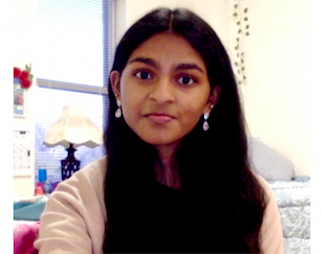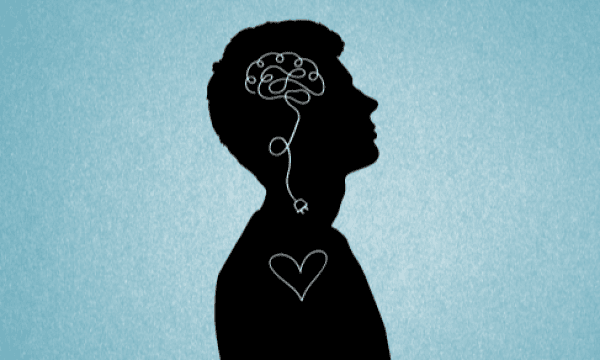
__
***Are you or someone you know in the global Tamil community doing great things? We'd love to feature them: FILL OUT THIS FORM ***
Network & collaborate with Tamil Changemakers from around the world. Request to join our private LinkedIn community here.
___
My name is Mritika Senthil and I am currently serving as the Community Engagement Specialist at the Asian Americans with Disabilities Initiative. I’m also currently a student at a boarding school in South Carolina. One thing that South Carolina is unfortunately known for is that its public schools often don’t meet national rankings, but the school that I currently go to sort of tries to move away from that.
And it’s actually ranked very well nationally. So there’s often those ideas that as students begin to transition to the school, they become very overwhelmed academically, as they’re faced with a new rigor that they haven’t experienced before. When I first came to school, I too was overwhelmed. I was struggling with physics and I was generally sad all the time.
And people have told me, you know, “this is normal”, “I’m an adolescent”, “this is expected of me in this new environment”. But gradually these symptoms began to worsen. What began as just excessive crying, transitioned into social isolation and binge eating. I was eating over four times the amount of calories I normally would eat and ultimately reached a state of apathy, where I really just had a disregard for my general well-being. I was very complacent regarding my health.
I began to realize that there was a problem. But unfortunately, on the exterior I seemed to be doing fine. I was always very academically ambitious and although my academic performance wasn’t at its initial level, it did decrease. And I’d also been very interested in public speaking, and I did continue these activities.
Whenever I tried to communicate with people, I was met with reactions indicating that I didn’t seem to have any type of depressive symptoms on the outside, even though I felt a general discontent with my daily living. Ultimately, my family and friends did take me to a healthcare professional.
Well, one thing I was surprised by was that instead of diagnosing me immediately, people often questioned my parents and accused them of “tiger parenting” because the Indian American communities and Asian American communities are unfortunately stereotyped as pressuring their kids to be high-achieving students.
Gradually, after seeing numerous psychologists and psychiatrists, we ultimately realized I did have depression and anxiety that was at a debilitating level. And one thing that I was sort of surprised by was that I was eligible to receive accommodations and that people with depression can qualify for social security benefits depending on the severity. And thankfully, due to my school’s willingness to provide these accommodations and medications, I did improve over time.
But one thing that continued to be frustrating was that my symptoms are often really just undermined to being something that was a consequence of Asian American parenting, or the pressures Asian Americans place on themselves.
One thing that I really thought about from my experience was what would have happened if race was taken out of the question and the process had become more streamlined. I also realized that disability and debilitating conditions are not necessarily something you can see physically and they can be something temporary, they can be something mental. My key learning from this experience was - we shouldn’t place disability or ethnic groups in boxes. I hope that we move towards taking out racial stereotypes when attempting to diagnose someone’s disability or mental health condition, and also not defining disability on the basis of its physical attributes or against stereotypes.
So with that happy AAPI Heritage Month, as well as Mental Health Month.
Learn more: https://www.instagram.com/p/CdtQCfCNC5G
**Looking to create your love story? Join the other couples who have dated and got married through myTamilDate.com!***
"myTamilDate Love Story: Jenani & Nav Found Each Other At The Right Time And Right Place In Life"
"myTamilDate.com Love Story: Tharshi & Ravi Found Love During Lockdown"
"How France Met Canada: A MyTamilDate.com Love Story"
***CLICK HERE to listen to us on Spotify!***
Related Articles:
- The Tamil Creator Podcast (EP #65): Rubi Balasingam - Kung Fu Trained Australian Actress & Writer Promoting Tamil Voices In TV & Film
- The Tamil Creator Podcast (EP #64): Rajan Bala - Missing Out On A "Big Exit" As The Co-Founder Of Retail Tech Startup Hiku
- The Tamil Creator Podcast (EP #63): Milli Thangarajah - International Makeup Artist (Published)
- The Tamil Creator Podcast (EP #62): Vinnin (Vinuson Suntharesan) - 17-Year-Old Canadian Hip Hop Artist With A Song On The NBA 2K21 Soundtrack
- The Tamil Creator Podcast (EP #61): Priscilla Sreedharan - Former Associate Producer on CBC's Dragons' Den
- The Tamil Creator Podcast (EP #60): Ravi Srinivasan - International Programmer At The Toronto International Film Festival (TIFF) & Hot Docs
- The Tamil Creator Podcast (EP #59): Genevive Savundranayagam - Serial Entrepreneur & Brand Builder Behind Mahara Mindfulness (Creator Of "The Human Being Journal")
- "Tamil Innovators Spotlight: Nivatha Balendra On Surviving Cancer & Building a CleanTech Startup"
- Tamil Innovators: Prajeeth Balasubramaniam Discusses Startups & Investing in Sri Lanka
- "Separated From Family During Sri Lanka's Civil War, Ganesh Thava Overcomes Childhood Adversities To Find Success As Actor, Writer & Director"
- "Singaporean-Born, Canadian-Raised, Decolonial Racial Equity Educator Channdika Thayver Delivers Powerful TEDx Talk On Racial Equity In The Workplace"
- "Tamil Innovators Spotlight: Theban Ganesh Discusses Building a Web3 Company, Improving Healthcare Through Blockchain, Successful Exits"
- "Karthy Subramaniam Co-founded Fast Growing Sauce Company LITS as a Tribute to a Childhood Friend"
- "Elite Athlete, Coach, Future Chiropractor & Entrepreneur Abirami Shanmugaratnam Is Making Waves In The Athletic Performance Industry"
- "Toronto's OG Food Writer Suresh Doss Is Using His Reach And Voice To Help Engineer A Comeback For Beleaguered Restaurant Industry"
- "Ballet And Kung Fu Trained Australian Actress & Writer Rubi Balasingam Is Promoting Tamil Voices In Aussie TV And Film"
- "Yathusha Kulenthiran's Marketplace For Environmentally Sustainable Palmyra Products Empowers Female Artisans In Sri Lanka"
- "Australian-Tamil Entrepreneur Sujan Selven Is Creating Economic Opportunities For Remote Villages In Northeast Sri Lanka Using Upcycled Devices & Improved Connectivity"
- "Crypto Tinhorn & Former Journalist Anand Venkateswaran Talks About Buying A $69M Digital Art Piece, Collecting Stories & Catalyzing Change"

























